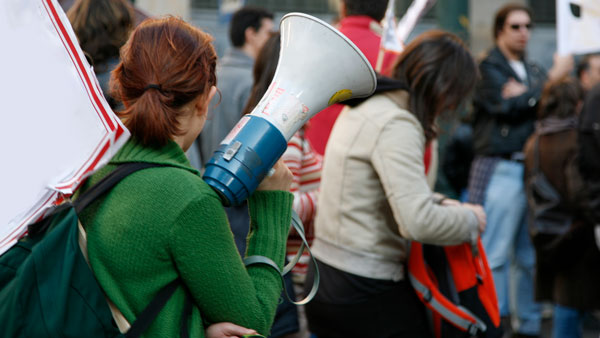High-profile human rights abuses in Africa regularly provoke condemnation and outrage from international observers. But does this outrage really drive progressive change, or does it actually fan internal flames, entrench attitudes and perpetuate the sense of African societies as benighted, regressive and tragic?
RSA/Aeon Debate
In recent years, acts of discrimination and violence towards minority sexual groups in Africa, such as the brutal murder of Ugandan rights campaigner David Kato, have provoked rising levels of international outrage and condemnation.
Both Hillary Clinton and David Cameron made threats to withdraw aid from African countries which pursue an anti-gay agenda, and earlier this year, Ban Ki-Moon made a historic address urging African leaders to decriminalise homosexuality.
But can such interventions be more hindrance than help to those campaigning for equality and justice on the ground? Observers have noted that such condemnation and judgement can prove counter-productive, entrenching attitudes, and causing harm to the most vulnerable; increasing surveillance; offering ammunition to leaders who wish to fan the flames of hostility to imperialist interference; and perpetuating the international sense of African societies as benighted, regressive and tragic and the people involved in these struggles as leading tragic and difficult lives.
How do we ensure that international outrage on justice and rights issues is communicated and channelled more effectively, so as to provide vital moral and practical support for grass-roots activism?
The RSA and Aeon Magazine brings together a panel of expert commentators to debate the issue and to explore ways of encouraging a more positive, intelligently informed and productive international human rights discourse and engagement.
Speakers to include: Graeme Wood, contributing editor to The Atlantic: Peter Tatchell, renowned human rights and LGBT global justice campaigner and Dorcas Erskine, National Coordinator for the Poppy Project and former Head of Policy for ActionAid.
Chair: Brigid Hains, co-founder and editor of and director of Touchstone Trust
Aeon is a new digital magazine of ideas and culture, publishing an original essay every weekday. We set out to invigorate conversations about worldviews, commissioning across a range of genres including science, memoir and reportage. We have a cosmopolitan outlook, open to diverse perspectives and committed to progressive social change. Aeon has a conversational ethos, encouraging frank debate in an atmosphere of generosity and open-mindedness.



Be the first to write a comment
Comments
Please login to post a comment or reply
Don't have an account? Click here to register.